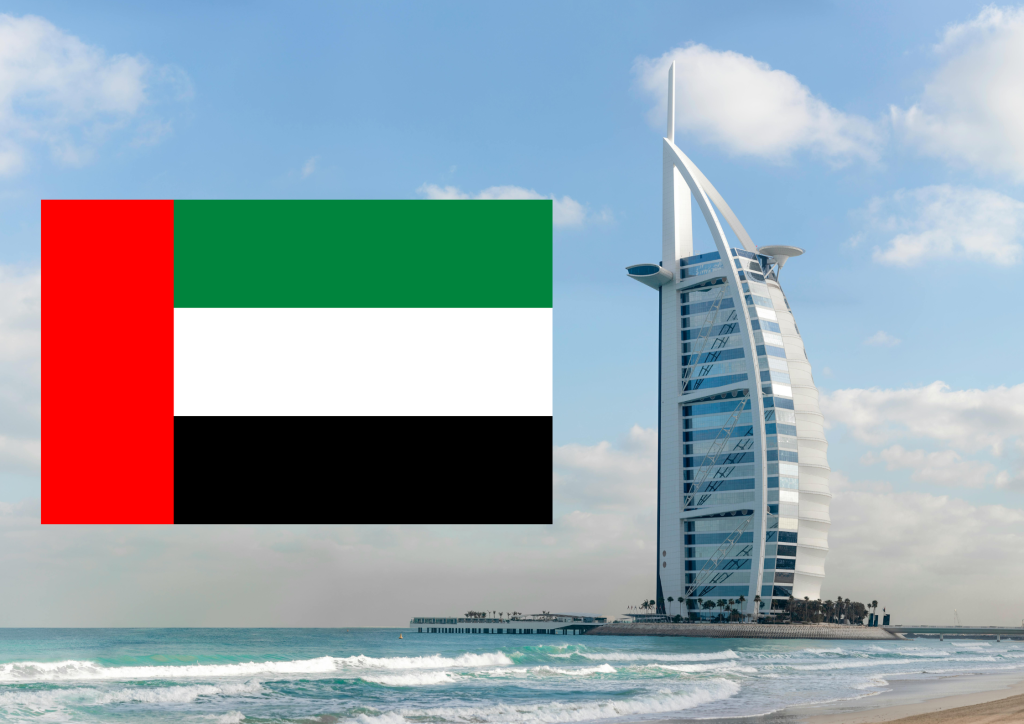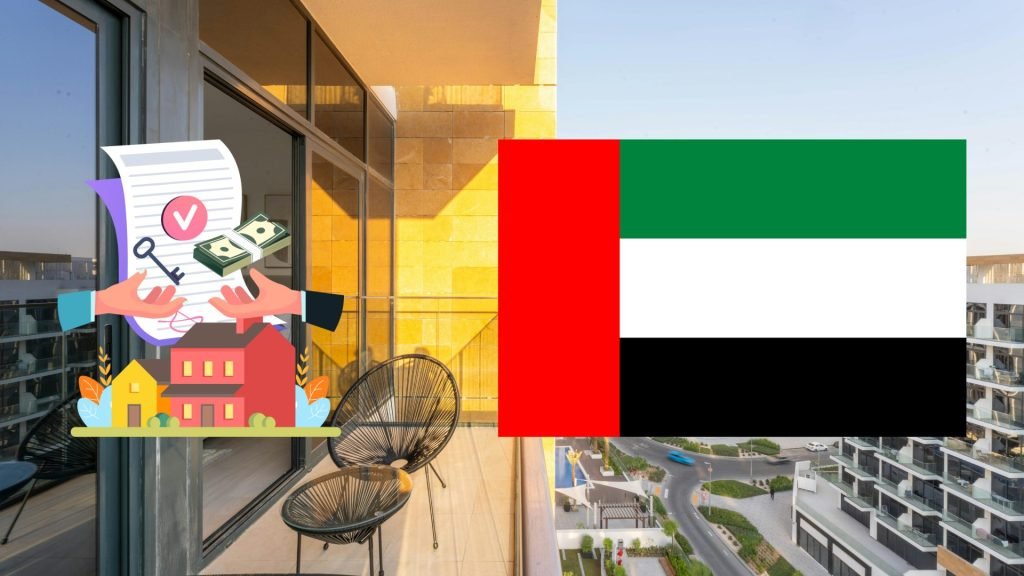Are you curious about taxes in Dubai? Then you’re not alone. One of the biggest attractions for expats moving to Dubai is the extremely favorable tax climate. Dubai has no income tax for individuals, which means you keep almost your entire gross salary as net income.
Deze enorm aantrekkelijke belasting trekt veel mensen aan over heel de wereld die vermogend zijn en/of een hoog inkomen hebben en dit inkomen niet locatiegebonden is. Zo komen veel mensen naar Dubai om daar te werken, een bedrijf te starten of om te investeren in Dubai.
There’s also no wealth tax or capital gains tax (for example, on the sale of shares or your house). This provides a significant financial advantage for many people and encourages saving and reinvesting money.
So, no taxes in Dubai, that sounds incredibly attractive. Who wouldn’t want to pay absolutely no tax on their entire income? However, it’s important to understand the whole picture – Dubai isn’t just a tax-free utopia; there are indeed some other taxes you sometimes have to pay. If you’re considering moving to Dubai for 0% tax, read this article carefully.
So, do you pay taxes in Dubai? Yes, in some cases you do pay taxes, but something like income tax doesn’t exist. In this article, we’ll list the main taxes in Dubai.

Emigreren naar Dubai belasting
Wanneer je definitief naar Dubai emigreert, krijg je mogelijk te maken met de zogenoemde conserverende aanslag van de Nederlandse Belastingdienst. Dit wordt ook wel de exitbelasting genoemd. Deze belasting is bedoeld om te voorkomen dat opgebouwde vermogens of fiscale voordelen, zoals bijvoorbeeld pensioenrechten, lijfrentes of aanmerkelijk belang in een BV, onbelast Nederland verlaten.
De Belastingdienst berekent dit bedrag alsof je op de dag van vertrek fiscaal afrekent, maar geeft meestal uitstel van betaling. Dit uitstel geldt tot maximaal 10 jaar, of zelfs onbeperkt bij bepaalde aandelenconstructies. Houd je je in die periode aan de fiscale voorwaarden (zoals geen afkoop of vervreemding), dan kan de aanslag uiteindelijk worden kwijtgescholden.
Belangrijk om te weten:
- De exitbelasting geldt ook als je naar een land als Dubai verhuist.
- Bij verhuizing naar een niet-EU-land kan je gevraagd worden om zekerheid te stellen (zoals een bankgarantie).
- Het is aan te raden om je goed te laten adviseren vóór vertrek, zodat je niet onverwacht wordt geconfronteerd met een hoge fiscale claim van de belastingdienst.
Wil je emigreren naar Dubai? Download dan zeker ons gratis e-book.
Income Tax in Dubai
How much income tax do you pay in Dubai? In Dubai, you pay 0% income tax as an individual, so simply put, there isn’t any.
Your employer doesn’t withhold anything for taxes, and you don’t need to file an annual income tax return as a resident of Dubai. This applies to both salary and income from rentals, investments, or salary from your own business within Dubai (i.e., money you earn as an individual).
This policy has made Dubai so attractive to international professionals and entrepreneurs. Expats (estimated at nearly 8 million in the UAE) massively benefit from this extremely tax-friendly climate.
Let op: als Nederlander die emigreert naar Dubai moet je je uitschrijven in Nederland en doorgaans wordt Dubai dan je fiscale woonplaats. Nederland en de VAE hebben een belastingverdrag om zo op die manier dubbele belasting te voorkomen, wat inhoudt dat als je echt in Dubai gevestigd bent, Nederland je buitenlandse (Dubai-)inkomen met rust laat.
Be sure to seek advice on this when emigrating, especially if you still have income or assets in the Netherlands.
VAT in Dubai
Just like in the Netherlands, you pay VAT (Value Added Tax) in Dubai. How much VAT do you pay in Dubai? In 2018, a VAT of 5% was introduced in the UAE on most goods and services. This means you pay 5% VAT on purchases – from supermarket groceries to restaurant bills and clothing.
This rate is significantly lower than the VAT in the Netherlands (21% high VAT and 9% low VAT), but it’s good to realize that this is not tax-free in Dubai.
Certain categories are exempt and taxed at 0%, such as basic foodstuffs, medical services, and education, but this is also the case in the Netherlands.
For the average consumer, the impact of the 5% VAT is fairly limited, but you’ll certainly notice it on large purchases (car, furniture, electronics). However, as a consumer, you hardly notice this because it’s simply included in the price. If you start a business in Dubai, you would need to take into account that you have to pay 5% VAT on most things.

Business Tax in Dubai
Do you pay taxes as a company in Dubai? Yes, above AED 375,000, you pay 9% corporate tax on your profits. This is, of course, still much less than in the Netherlands, where you pay 19% under € 200,000 and 25.8% above € 200,000 (at the time of writing). Check here for the most current corporate tax rates in the Netherlands. As a company, you therefore pay corporate tax.
In addition, as a company, you often pay yourself a salary. This salary then falls under income, on which you don’t pay taxes. This probably also differs from your home country.
For a long time, the Emirates did not levy profit tax on business profits outside the oil and banking sector. However, as of June 2023, a federal corporate tax of 9% has been introduced on profits of companies exceeding AED 375,000 (approximately € 94,000) per year. Check here for the most current corporate tax rates in Dubai.
Small businesses or entrepreneurs below that profit threshold remain taxed at 0%, which means that many freelancers or small start-ups still don’t pay profit tax in Dubai. Additionally, that 9% is also quite reasonable. The introduction of this profit tax is intended to comply with international standards and make the economy less dependent on oil revenues, but at 9%, the rate remains very low compared to other countries in Europe.
Ga je werken in Dubai? Dan heeft het voor jou als werknemer weinig direct effect (het raakt vooral bedrijven). Wel kan het relevant zijn als je van plan bent een bedrijf op te zetten in Dubai.
If you’re going to start a business in Dubai, you choose between setting up a company in a free zone or in the mainland. Free zones often offer up to 50 years guarantee of 0% profit tax, which is still a reason why companies establish themselves in free zones.
Other levies
Are there any other levies in Dubai? Besides the standard taxes in Dubai that we have now covered, there are also a number of levies in Dubai that are useful to know. Dubai has import duties of usually 5% on products you import (although as a consumer you hardly notice this, except that imported items are slightly more expensive).
How much import costs do you pay for alcohol and tobacco in Dubai? Specific products are subject to excise duties or higher taxes: there is a 50% tax on alcohol and 100% on tobacco as a health measure. Read here the most current import duties in Dubai.
Municipal tax Dubai
If you buy a house in Dubai or rent a house, you will have to deal with municipal tax. As a tenant, you pay municipal tax indirectly through your energy bill: approximately 5% of your rent is charged monthly as a ‘housing fee’ via the DEWA bill (in some emirates this is called baladiya tax).
Hotel bills and vacation home rentals also have tourist tax. For most expats, these remain footnotes; the big advantage remains the absence of income tax.

Advantages and disadvantages of taxes in Dubai
Now that you know everything about taxes in Dubai, we have summarized the advantages of the tax system in Dubai.
Advantages
The advantage of Dubai’s tax system is clear: you keep more money from your salary, which increases your financial power. This is ideal for building more wealth, paying off debts, or investing in Dubai.
Also, the UAE has no complicated system of deductions or allowances – it’s all very easy, nothing is deducted.
It’s also attractive for entrepreneurs: profits are taxed low and reinvesting your income in Dubai pays off. For example, you can get a visa if you invest a lot and you also don’t pay income tax on your private income.
In addition, the government uses other sources of income (oil, VAT, tourism), making the infrastructure and services all very good without directly taxing citizens.
Disadvantages
Er zijn echter ook keerzijden. Zo is er geen sociale zekerheid of pensioen in Dubai vanuit de overheid zoals in Nederland. Je betaalt geen premies, maar bouwt dus ook geen recht op AOW, WW of arbeidsongeschiktheidsuitkering op in Dubai. Je bent in Dubai wel op jezelf aangewezen en je moet voor jezelf kunnen zorgen. De overheid gaat je niet helpen.
You will have to arrange these matters yourself or trust that your savings provide sufficient buffer if something unexpected happens.
Furthermore, no income tax also means no redistribution: things like schools for expat children and healthcare are not subsidized by the state, so you pay a lot for these yourself (high school fees, insurance premiums, etc.).
Een ander nadeel kan zijn dat als je ooit terugkeert naar Nederland, je geen pensioen hebt opgebouwd en mogelijk weer sociale premies gaat betalen als je weer gaat werken in Nederland – als je dus naar Dubai wilt verhuizen voor de aantrekkelijke belasting, denk dus wel goed na hoe je jezelf gaat redden in Dubai.
Finally, the absence of income tax means that the government tries to generate income in other ways. This is through fines and permits, for example. Think of high traffic fines or costs for residence permits, which can indirectly feel like a “tax”. However, the government is very wealthy, so they simply don’t need the money from the residents.
All in all, for many expats, the advantages of tax-free income in Dubai outweigh the disadvantages, making Dubai a popular destination for career seekers and entrepreneurs. As long as you know that you must be able to take care of yourself in Dubai and that the government has a less extensive safety net compared to the Netherlands.

Frequently Asked Questions
No, as an individual you pay 0% income tax.
Yes, you pay corporate tax in Dubai. It is currently 9%.
You currently pay 5% VAT in Dubai.
Als particulier betaal je 0% inkomstenbelasting. Daarnaast heb je nog wel andere belastingen in Dubai, zoals bijvoorbeeld venootschapsbelasting (als je een bedrijf hebt) en btw.





